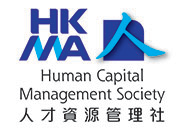FOREWORD
Human Resources insight beyond boundaries - Can robots replace human?
With Alpha Go defeating the Chinese world chess champion Ke Jie in May 2017, the heat of debate on whether Artificial Intelligence (AI) can ultimately replace human beings on earth comes back. The threat to human nowadays hinges on the machine ability to think and learn. The Chinese has an old saying, it’s rather to mistreat an old than a young one. Youngsters’ ability to grow (both physically and mentally) and to learn (from others and by themselves) can often reach a point beyond what their parents or teachers thought. With youngsters’ ability to grow, learn and think, and without mankind’s natural aging problem, will robots with Artificial Intelligence conquer human beings and swipe the earth?
In a daily KOS article titled “When will AI exceeds human performance” published on 6 June 2017, it is predicted in a research paper by Katja Grace published in arxiv.org the same month that AI will outperform humans in many activities in the next 10 to 35 years. Researchers believe that translating languages will be outperformed by AI by year 2026; driving by 2027; retail work by 2031, book writing by 2049, working as surgeons by 2053; and surprisingly performing AI research by AI in 2102! Hence in the next 15 years, we will face a drastic takeover in many jobs by machines. Interestingly Asians expect an earlier takeover by machines in the same job than the North Americans do.
In the World Economist journal, it was forecasted that the vulnerability of automation is not so much dependent on whether the job concerned is a manual labour routine job or a white collar office job. Stephen Hawking, the renowned scientist in universe once wrote “The automation of factories has already decimated jobs in traditional manufacturing, and the rise of AI is likely to extend this job destruction deep into the middle classes, with only the most caring, creative or supervisory roles remaining.” Barack Obama also admitted in an interview at wired.com that “jobs that are going to be displaced by AI are not just low-skill service jobs; they might be high-skill jobs but ones that are repeatable and that computers can do.”
With the dot.com waves being taken over by apps and e-pays, the world economies of traditional trades are threatened by disruptive business modes. Alibaba, Taobao, Amazon are taking over trading firms, retail stores and book stores, bypassing these transaction intermediaries. Rise of e-stores pushes for success of logistics and courier deliveries. The wide adoption of Alipay, Paypal, Taodot, ApplePay, GooglePay is conquering the traditional banking arena of retail transactions. E-pay mechanisms are taking over many credit card functions, and in China nowadays probably there are more Alipay users than credit card users.
To push to the extremes, one may easily think of AI and mobile transactions causing disruptions in job market, resulting in welfare payments to human or “universal basic income (UBI)” and shorter working hours. While Elon Musk, CEO of Tesla, talked about merging the human brain with software and AI, we may easily be tempted to even think of human receiving UBI, a periodic payment unconditionally delivered to all individuals without any job requirement. In a New York Times article “A Plan in case Robots take the jobs: Give everyone a paycheck”, Wenger said “it is a bad use of a human to spend 20 years of their life driving a truck back and forth across the U.S. Automation and basic income is a development that will free us to do lots of incredible things that are more aligned with what it means to be human.” That echoes what Elon Musk said in Dubai “World Government Summit” : “I think we’ll end up doing universal basic income.”
The message for us is not to dream of UBI to save us from robots, but to drive our passion to keep building up our creative skills, our caring hearts, our passion of humanity that requires ingenuine human interactions and high level abstract thinking. Our human future lies in a huge variety of jobs that requires human competencies of innovation, artistic sense, interactional skills, interpretation of abstract ideas, relational thinking, caring heart . . . which could never be replaced by cold robots that could think a thousand times faster than our brain but do not even shed a tear nor laugh at humour.
Mr Peter Leung
Chairman
Human Capital Management Society

Making the Best Out of People
Organizations have to adapt quicker than ever to change and HR is at the forefront of that, specifically on how they make the best out of people to create competitive advantages for the business.
HR leaders have a pressing need to keep abreast contemporary academic researches and benchmark the best practices from different industries. The booklet is a handy reference for HR leaders for both purposes with insights collected from scholars and HR practitioners.
HR profession grows as a whole through exchange of insights, cross-learning and collaboration beyond boundaries. We hope this booklet will trigger more sharing among people from different backgrounds on making the best out of people.
Mr Chester Tsang
Immediate Past Chairman
Human Capital Management Society
